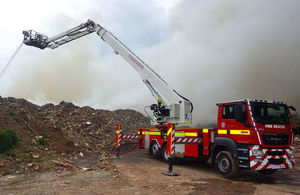Tackling Food Waste in the UK

Food waste has been an ongoing problem in the UK since well before the pandemic arrived. But the enforced closure of hundreds of thousands of restaurants and pubs across the country has created a huge shortfall in demand. And it’s not just restaurants; weddings, funerals, schools and large public events all generate demand for food, all of which would go straight to landfill.
The UK wastes around 9.5 million tonnes of food each year, of which 70% is wasted in the home. Manufacturers, hospitality, and food service companies are responsible for the remaining chunk. When food isn’t eaten, it tends to be diverted in pet food or compost, or it might get dumped straight into the landfill. According to the Guardians of Grub campaign, which aims to encourage action by the UK Hospitality and Food Service sector, the industry loses £3.2 billion each year, and three quarters of the waste could have been eaten.
What About Charities?
Of course, this has significant implications for charities. Prior to the pandemic, food charity Fareshare was supplying around 900,000 meals per week. Following the pandemic, it’s now risen to just over two million – though it spiked at closer to four when interest in the subject was at its peak. These are supplies mostly through food banks, school breakfast clubs, and homeless shelters.
The size of this increase might be impressive, but there’s been a much greater increase in demand for food. Since last year, unemployment has climbed steadily to 5.1%, and it’s likely to continue to grow well into next year. This is going to inevitably push more people into food poverty. According to estimates from Sustain UK, 8.4 million people are now living in food poverty, and the situation is only likely to worsen as the economic impact of the pandemic plays out.
Among the most impressive one-off donations to Fareshare has come courtesy of Kent-based DGM Growers, which donated three lorryloads of celeriac. The charity’s network allowed it to distribute this obscure food to those who need it across the UK. Celeriac, chicory and fennel are the company’s star products – but they’re mostly destined for restaurants who know what to do with it.
The company’s general manager, Simon Scott, told the BBC: “It’s provided a significant amount of meals for those in need at this really difficult time. And I think that’s really the focus for us, to turn this problem into a positive solution.”
Of course, getting the food to those who really need it requires advertising as well as logistics. That’s where booklet and flyer printing companies can play a critical role. Printed materials distributed through letterboxes in high-poverty areas can make a substantial difference – especially to those who might not have access to social media, and who might benefit from a serving or two of free celeriac.




